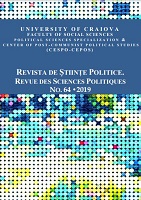Romania in the European Context: Social and Legal Effects of the Matrimonial Property Regimes in Contemporary Society
Romania in the European Context: Social and Legal Effects of the Matrimonial Property Regimes in Contemporary Society
Author(s): Cristina Ilie Goga, Andreea Mihaela NițăSubject(s): Civil Law, Family and social welfare, EU-Legislation
Published by: Editura Universitaria Craiova
Keywords: matrimonial property regimes; family; marriage; matrimonial agreements; Romania; European states;
Summary/Abstract: The reconfiguration process of Romanian society after December 1989 was slow and arduous. Unstable political climate has inducted to an effervescent dynamics of legislative changes, thus the first Family Code from the year 1953 and entered into force in 1954, has undergone substantial changes until its abrogation by Law no. 71/2011 for the implementation of the Civil Code of 2009. In order to ensure the compatibility of the Civil Code with the rest of the laws in force, it was chosen to integrate the provisions regarding family relations with changes adapted to the evolution of the society. And in the case of matrimonial property regimes, the changes considered the principles of the pluralism and the flexibility, abandoning the principle of mutability. The risks derived from the matrimonial cohabitation in contemporary society imposed this change: occupational migration, change of family roles, accentuation of economic cleavages, acute poverty etc. The regime of separation of property and the regime of conventional community were established through the possibility of concluding a matrimonial agreement. Although the judicial practice confirms the utility of the convention, social statistics disprove it. The typology of post-modern family is based on the characteristics of the traditional family, even it is modeled by the phenomena and the processes of the globalization era. The values on which the marriage is based are the love and the trust, the feelings prevailing over the reason. This is also the reason for knowingly ignoring the two regimes, choosing a priori the regime of legal community. Are the partners aware of the effects of ignoring the regimes of separation of property and conventional community? This article attempts to analyze the answer to this question from a social and a legal point of view.
Journal: Revista de Științe Politice. Revue des Sciences Politiques
- Issue Year: 2019
- Issue No: 64
- Page Range: 35-52
- Page Count: 18
- Language: English

